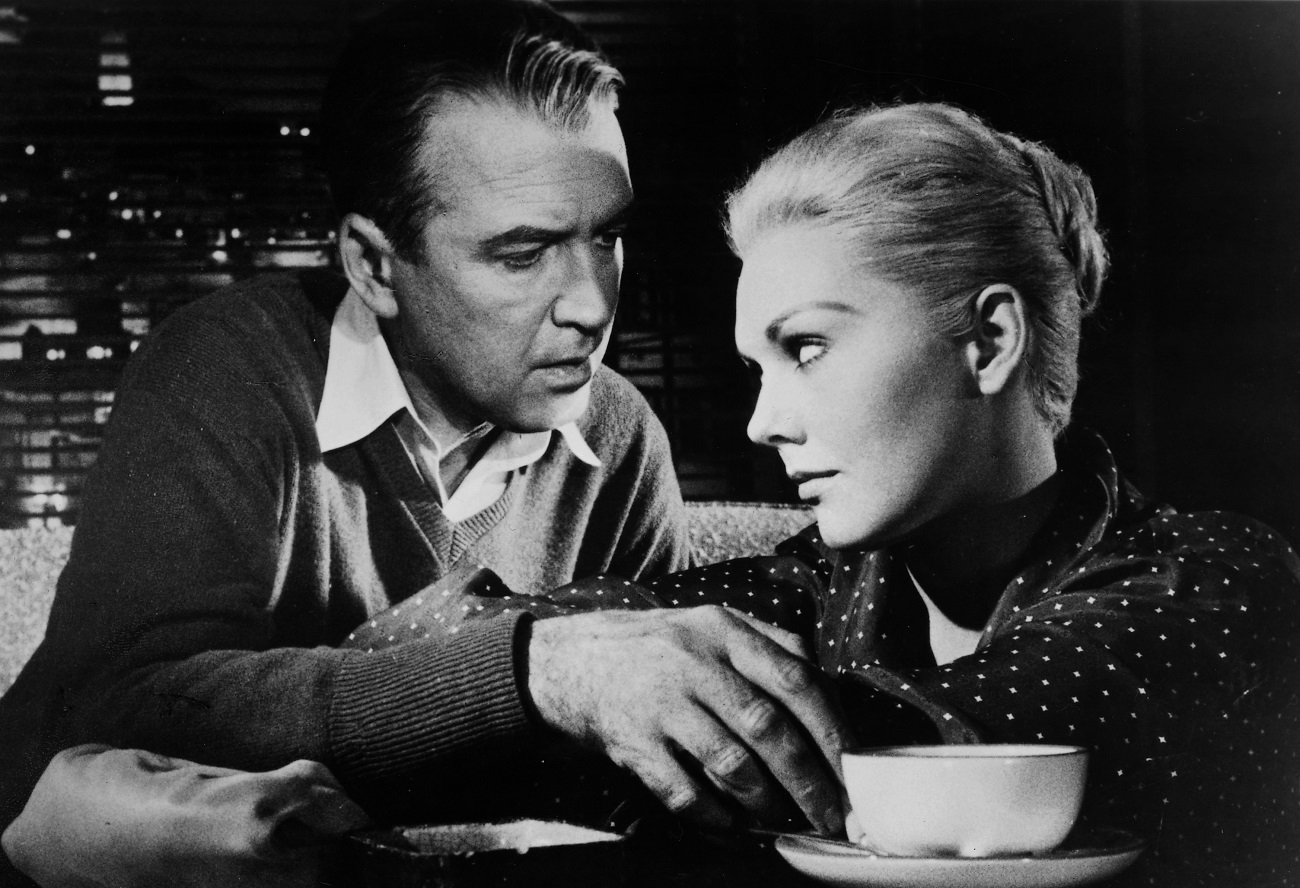

The film's empathy for its troubled women reaches apotheosis in the astonishing moment when anguished Judy lets us into her secret. So many of Midge's scenes end in isolation and pain, illustrative of the film's emotional palette – not Technicolor but chiaroscuro. Yet somehow at the end of the scene, we and Scottie abandon her and she breaks down. When she impishly paints herself into a portrait of Carlotta, puncturing Scottie's overwrought fixation, it's charming, no question.

She could be the light relief, but Hitch won't have it. I always fall a little in love with modern, independent Midge (Barbara Bel Geddes), zesty counterpoint to Madeleine's doomy beauty. While the film is too long, I am still in thrall to its loops and perversities, drawn inexorably into its coils. The sense of time throughout drifts in and then away from the narrative.

Scottie himself has become a ghost, or an Orpheus descending into the underworld for his love, to the places he will return in grief. The camera floats, as does the pale car on its numinous pilgrimage. Watch the extended, silent sequence of Scottie tailing Madeleine. However, the less pyrotechnic side of Hitchcock's technique is a revelation. Some may think this heresy, but I find some of Hitchcock's technical showboating – dolly zooms et al – distracting. I don't care about San Francisco or what it means.

I don't particularly care for the film's moments of laboured symbolism – Saul Bass's spirograph credits for instance, or the celebrated nightmare sequence. To my mind he's not so much playing against type as investigating the dark obverse of his trademark screen presence: boyishness grown into emotional immaturity, his simple idealism now pointing the wrong way. As for Jimmy Stewart, much has been made of his work here, as the increasingly morbid, sweaty, damaged policeman. Kim Novak has spoken of what she saw in the script, an analogue of the Hollywood star system in which she was a property. Scottie's moulding of Judy imitates Hitchcock's own sadistic treatment of actors, directly mirroring his trademark production of fetishised cool blondes. Many agree it is Hitchcock's most effective and personal commentary on his medium, the spell of cinema and his role in it. Everyone's catch will be different, and different each time. Ultimately the beauty of Vertigo cannot be so captured and pinned it is more akin to the butterfly garden, in which we all wave our own nets. For every theory though, there is a counter theory grounded in the same facts, the same landscape viewed in different moods. Desire and artificiality are the film's central concerns, but ideas on subjectivity, female objectification and the male gaze frequently ballast themselves by looking into its Rorschach eye. Yet readings of the film are ever more complex. The story's formula, a twist on Hollywood staple, was ironically summed up by Hitchcock as "boy meets girl, boy loses girl, boy meets girl again, boy loses girl again". The two tentatively begin to date, yet unable to relinquish his deepening obsession and despite her protestations, he alters her hair, makeup and clothes and forcibly transforms Judy into Madeleine. A year later, a depressed and guilt-ridden Scottie happens upon Judy, a young woman who bears a striking resemblance to Madeleine. However, an attack of vertigo renders Scottie incapable of preventing her death, which mentally breaks him. Sceptical Scottie agrees to follow Madeleine and after intervening in her attempted suicide, inevitably falls in love. During his recovery, Scottie is approached by old pal Elster (Tom Helmore), who confides that his wife, Madeleine (Kim Novak), has been possessed by the spirit of Carlotta Valdes, a suicidal 18th-century aristocrat. The preposterous story is that of Scottie (James Stewart), a detective who develops a fear of heights after watching a colleague fall to his death.


 0 kommentar(er)
0 kommentar(er)
